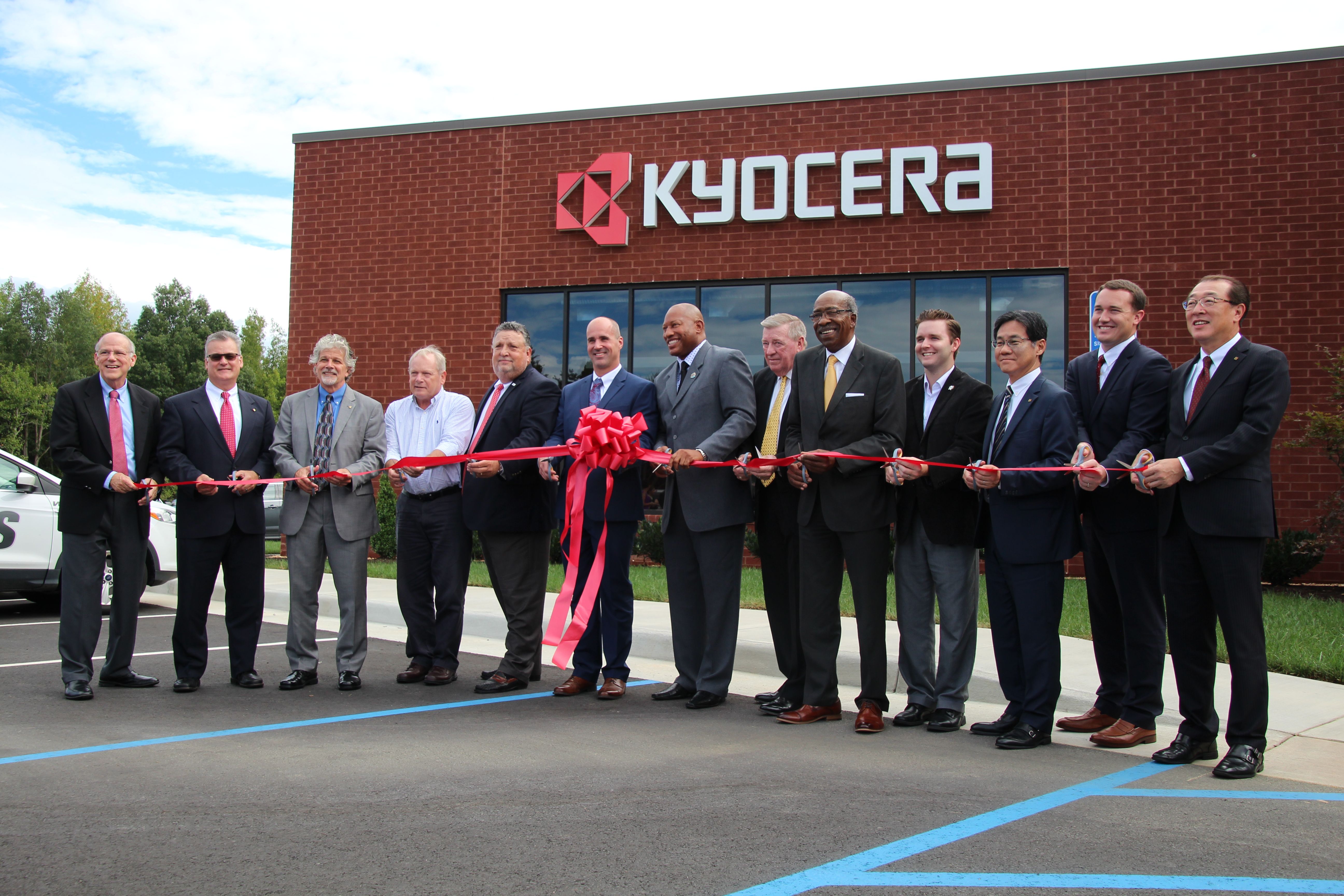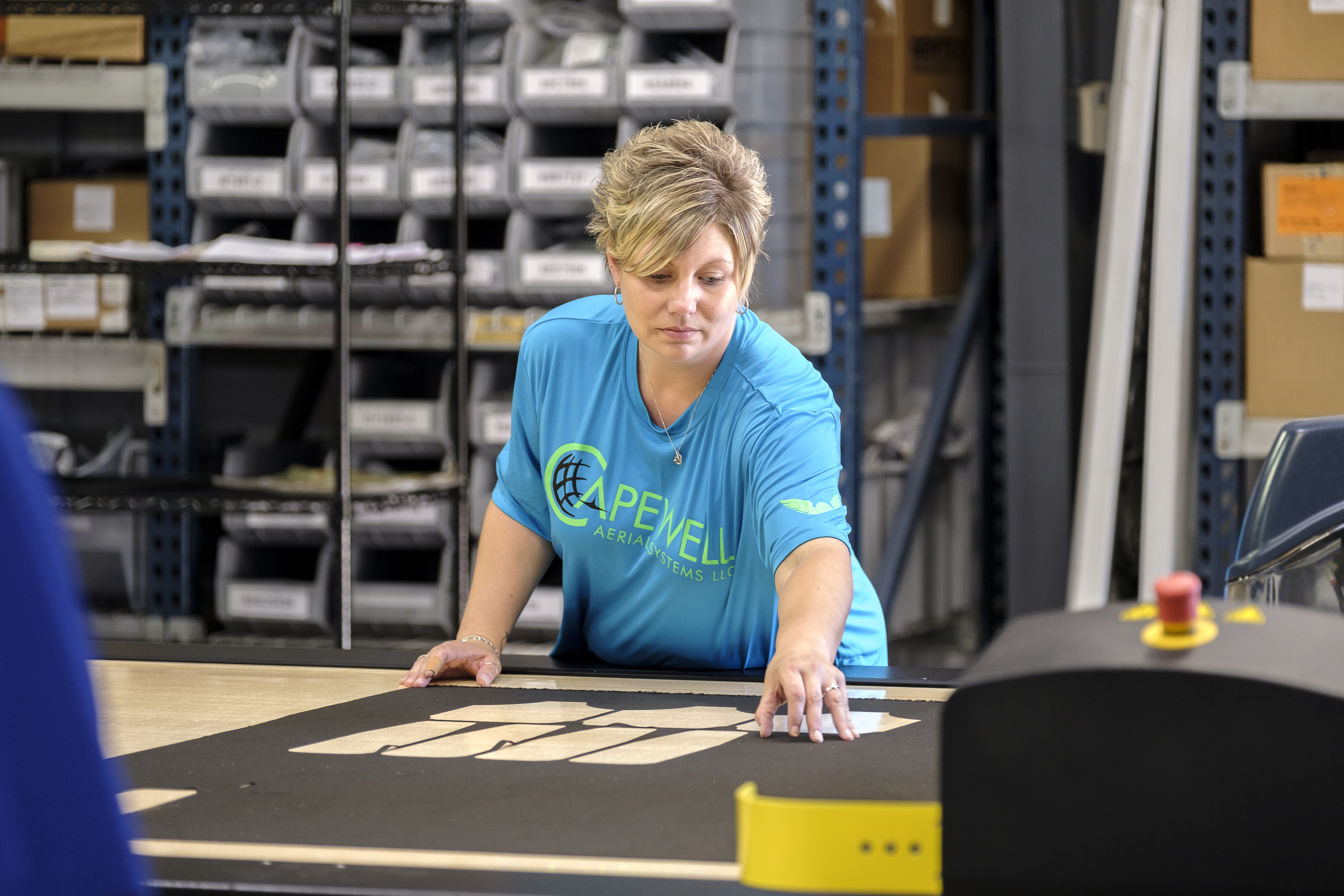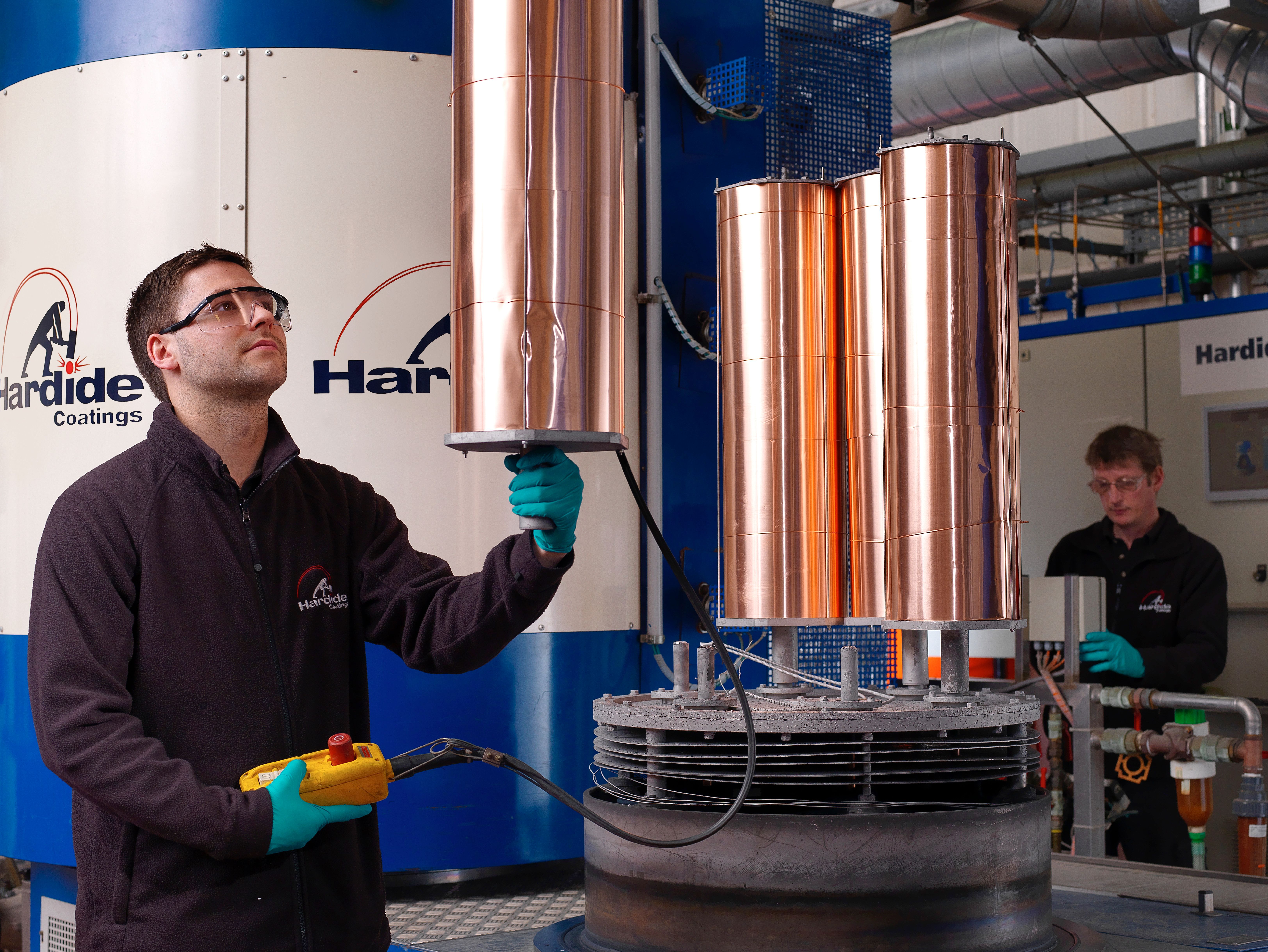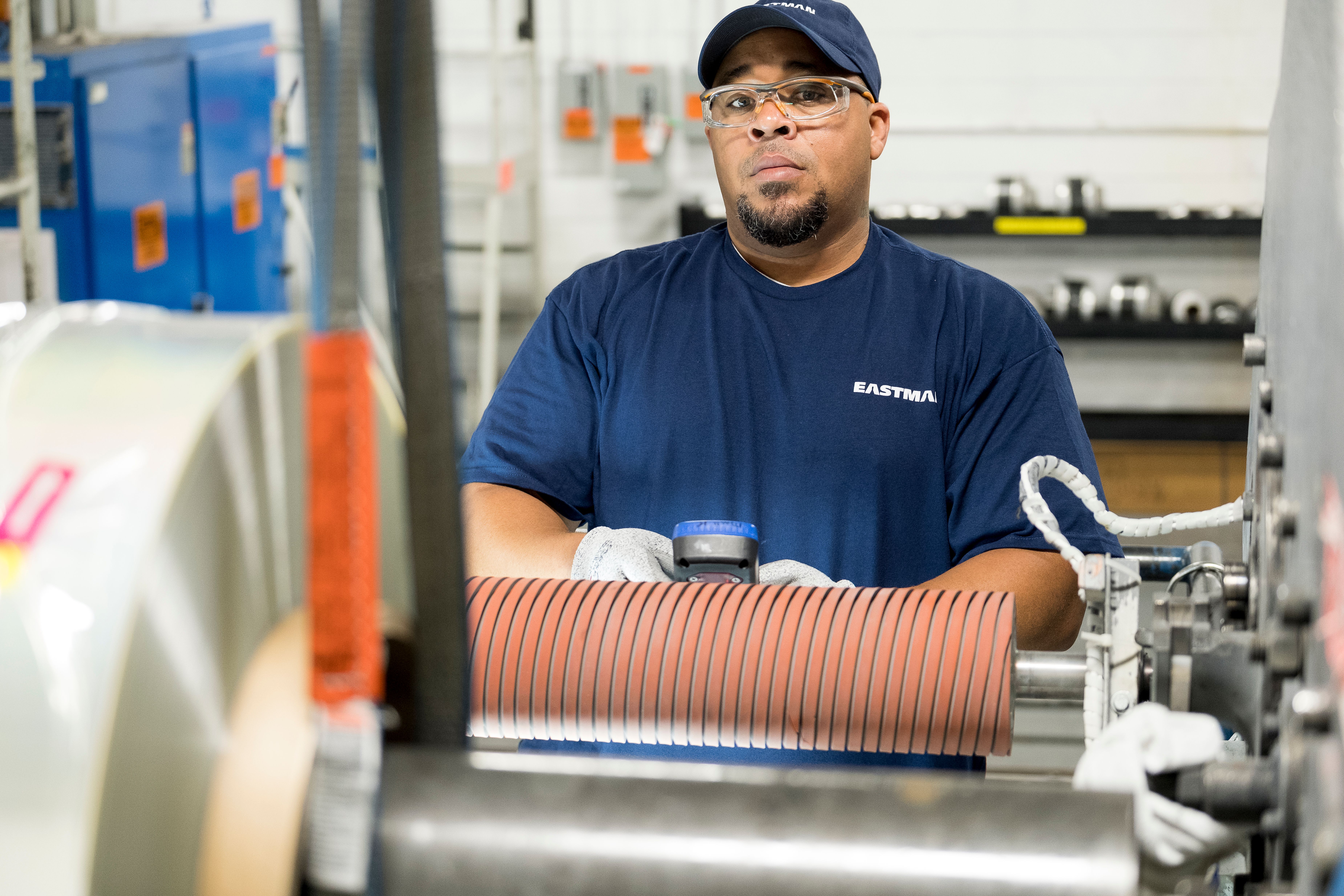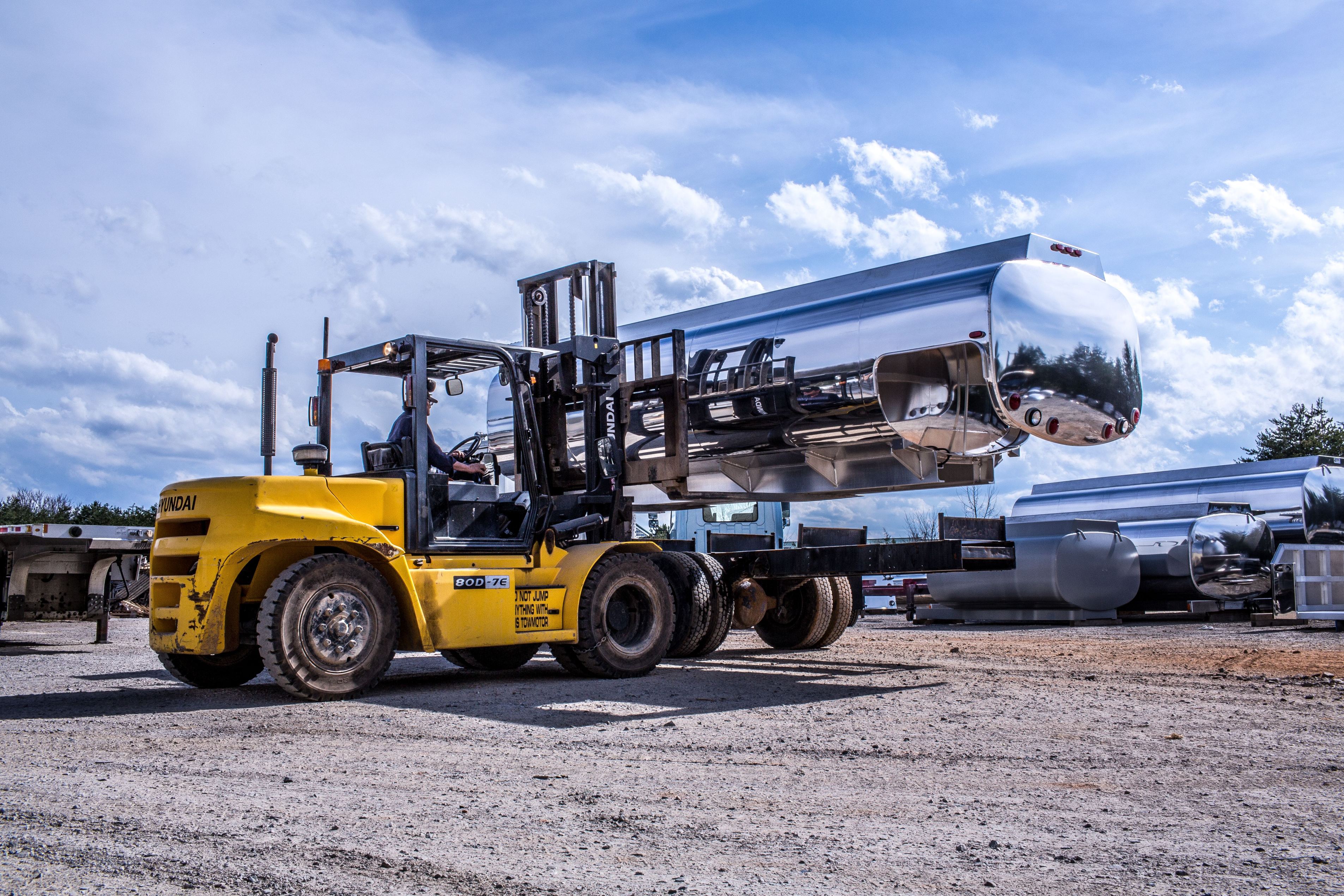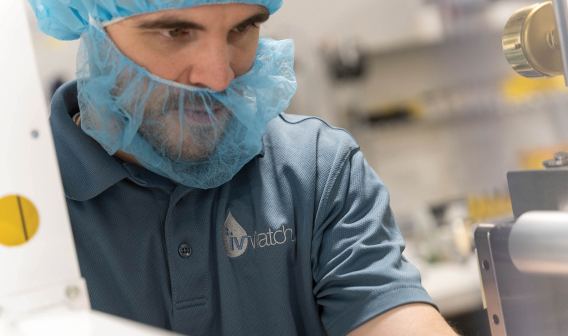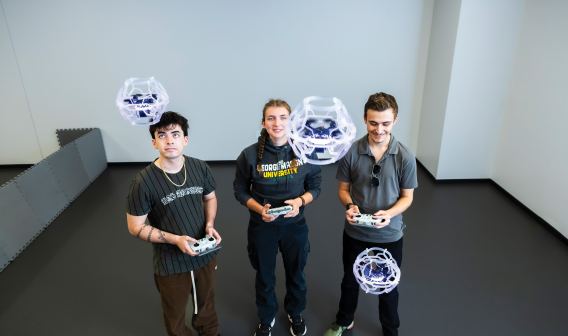Southern Virginia Showcases Next-Level Manufacturing Talent Pipeline
Former Textile Stronghold has Pivoted to Fuel the Future of Advanced Manufacturing
The globally lauded comeback story of Southern Virginia hinged on taking on a task that many communities attempted, but few have achieved: reinventing its workforce.
For the City of Danville, Pittsylvania County, and the broader area flanking Virginia’s border with North Carolina, tobacco and textiles had long fueled a vibrant economy accessible by major four-lane highways, as well as international airports in neighboring Raleigh and Greensboro, North Carolina.
But after the busy mills that once rolled out comforters and carpeting, and Levi Strauss denim left the area in the early 2000s, the area’s economy lost its momentum.
Without skipping a beat, regional leaders gathered to write their own revival. And now, Danville is a trailblazer of note, attracting capital investment from enterprises both here and abroad. These include Overfinch North America and Harlow Fastec from the United Kingdom, Kyocera subsidiary Kyocera SGS Precision Tools from Japan, and Essel Propack from India.
“When we came to Danville, the decision was instantaneous,” said Jason Wells, Kyocera SGS president. “I can say 100% that the workforce pipeline was like nothing we’d seen in the United States.”
It adds up to Danville garnering the No. 8 ranking on the 2017-18 list of top U.S. micro cities by FDI Magazine. The momentum was also powerful enough to serve as a case study for other states. In August 2018, Arkansas Governor Asa Hutchinson toured the region’s programs with Virginia Governor Ralph Northam.
How did Danville do it? By doubling down on its manufacturing roots. This time, it was future-proofed, led by advanced and precision manufacturing — paired with an open embrace of workforce training on Industry 4.0’s cyber-physical systems, the Internet of Things, as well as both cloud and cognitive computing. In other words, it wasn’t solely infrastructure and location that would draw companies to the region. It was a high-skilled workforce, one that was methodically reverse-engineered to possess the advanced manufacturing skill sets that employers operating on the cutting edge coveted.
“This area didn’t wake up one day and just decide we wanted to be a home to manufacturing,” said Telly Tucker, director of economic development for the City of Danville. “We have a long history and we didn’t want to lose that. It’s very much in our DNA.”
A Region United
Make no mistake about it. Danville and Pittsylvania would not be held up as a shining example of how to create a manufacturing renaissance without well-greased regional cooperation. Pooling the efforts of many, the city and county have built an attractive pitch to potential companies.
Southern Virginia’s collaboration is evident in the shining edifice located in the heart of Danville’s Cyber Park: The Institute for Advanced Learning & Research (IALR).
“Our mission is economic transformation,” said Mark Gignac, executive director of IALR. The 15-year-old campus, with a nearly 100,000-square-foot facility whose functions run the gamut from conference center to working regional nexus of industry and education, is undergoing two separate renovation and expansion projects. Additions include the 51,000-square-foot Center for Manufacturing Advancement, which will allow advanced manufacturing companies to collaborate and enhance processes, improve quality, integrate emerging technology, and discover next-generation capabilities. IALR is also building its workforce resources, having launched the Advanced Manufacturing division in 2018. The new division partners with Danville Community College (DCC) to offer students a third year in the Gene Haas Center for Integrated Machining.
While the IALR is the heartbeat, war room, and subject matter expertise hub for the Dan River region, it’s just one of myriad tools the area has to entice companies to call it home. Others include:
Low costs: The area’s wages are 24% below the national average, according to BLS data.
A name-brand manufacturing base: While the region actively courts and welcomes new companies, it features a strong base of global employers to serve as a testament to its commitment to providing skilled manufacturing labor. These include Goodyear, Nestlé, ABB, and Eastman Chemical, among others.
Agile and adaptable workforce solutions: Talk to the leaders driving the economic development agenda, and you’ll quickly learn that a cookie-cutter approach just won’t cut it. Adaptability and responsiveness are key. When tank truck manufacturer Amthor International had an immediate need for aluminum welders at its expanded Gretna operations, leaders hustled to create a customized fast-track welding course. The turnkey program was held at DCC’s new state of-the-art welding facility and produced skilled workers who were hired in a matter of weeks.
Top-flight sites: While workforce has taken the lead among decision factors in site selection, infrastructure still plays a major role. In Southern Virginia site selectors will find a number of ready-to-go sites. This includes Cyber Park — home to IALR, the Gene Haas Center for Integrated Machining, and Kyocera’s new 30,000-square-foot facility — as well the Southern Virginia Megasite at Berry Hill. The certified megasite, the largest in Virginia, features 3,528 acres and is suitable for OEM manufacturing operations and other large industrial tenants. In Henry County, Commonwealth Crossing Business Center features pad-ready industrial sites and an on-site training facility available to companies who commit to locating in the park.
Quality of life: Manufacturing reinvention isn’t the only headline touting progress in Southern Virginia. Danville’s revitalized River District has been infused with more than $150 million in capital investment, bringing dining destinations, retail, breweries, museums, and more to the area.
A Look Through the Pipeline
What highly skilled jobs will there be a high demand for over the next 30 years?
According to Troy Simpson, the IALR’s advanced manufacturing director, this was the key question Southern Virginia leaders needed to answer a decade ago.
Simpson has been in the trenches of the very education system he was working to transform, both teaching and leading the charge to update the curriculum at DCC for 27 years.
Building a training pipeline tailored to the careers employers were seeking to fill wasn’t enough, Simpson said. The effort needed to be scalable so it could expand based on local companies’ real-time hiring needs.
“What sets us apart,” Simpson said, “is that it’s a very predictable pipeline.”
Here is a trip through this one-of-a-kind hub-and-spoke training pipeline developed by the region’s educators, economic leaders, and employers seeking out specific profiles and skill sets:
Early Applied Learning at Career Connection Labs
The newest additions to the region’s resources include two state-of-the-art middle school classrooms, one each in Danville and Pittsylvania, serving 6th through 8th graders. As part of a pilot program of the GO-TEC project (Great Opportunities in Technology and Engineering Careers), the labs introduce students to high-tech welding simulators, parametric modeling software, coding, and programing. There is also a 2-kg. Yaskawa Mini Bot Cell robot — a roughly $30,000 piece of equipment in a $300,000 lab — which Simpson believes is the only one in a middle school in the country. “We’re seeing kids perform at a very high level,” said Angela Rigney, director of career and technical education for Pittsylvania County. “Our data shows they excel,” crediting the role of applied learning versus traditional classroom lesson plans. For example, in Pittsylvania, students who go on to complete a Career & Technical Education program score above 99% on average for reading and math Standards of Learning tests, which is well above the 80% benchmark for both areas.
Best-in-Class High School Immersion
At both the Pittsylvania Career & Technical Center and Danville’s George Washington High School, students can apply for specialized tracks focusing on precision manufacturing technology, cybersecurity and IT, welding, and others that are built on industry’s current and future needs. It’s easy for precision machining technology instructor Porchia Russell to relate to her students, whether they’re watching their holiday ornaments churn out on a 3D printer or seeing if their projects measure up in the inspection lab. That’s because she’s a graduate of the program. “Here they see that their career potential is truly limitless,” Russell said.
A number of reminders drive this point home, including banners hung throughout the labs emblazoned with company logos from employers looking to hire graduates of these programs. You might even see industry representatives, who routinely visit the classrooms to speak with students. The motivation is by design. “Companies come in and say, if you finish the program, you have a job,” Simpson said. “And you can make $27 an hour to start.” More immediate gratification is also possible: leaving with 40-plus college credits and skipping the first year of college’s basic skills coursework.
Fulfilling Higher Ed Potential
Walk through DCC’s Engineering & Industrial Technologies facility, their brand-new double-sized welding building, or the Regional Center for Advanced Technology and Training, and the technology, as well as the work product, rival that of any college or university. It equals or outpaces professional shop floors and labs. Here, as many as 108 first-and second-year students can learn precision manufacturing technology in a fine-tuned real-world environment that can be expanded quickly with additional hires. This is where the manufacturing skills gap is filled. “We’re growing high-skilled talent not just to replace workers, but to have excess workers for investment,” Simpson said.
Bringing the Factory into the Classroom
During a recent visit to the Gene Haas Center for Integrated Machining, half the students had already landed jobs, and several months still remained in the academic year. In this state-of-the-art facility, third-year DCC integrated machining technology students learn cutting-edge shop equipment inside and out within a full-scale workflow cell simulating a real-world shop floor. Additionally, they’re given rigorous soft skills training through courses including industrial leadership and career development. “We truly believe we’re creating the future of manufacturing leaders,” said Tim Robertson, integrated machining technology instructor and graduate of the program.
What's Next?
Ask Southern Virginia’s leaders, and they’ll tell you that this is simply the beginning of the region’s economic transformation, not the end.
“After all, it took seven years for us to work together and update manufacturing training from the ‘30s,” said IALR’s Simpson.
Danville’s Tucker is also optimistic: “We took a ‘build it and they will come’ approach.” And that approach has led to success stories.
Take Kyocera SGS, the custom tool manufacturer that opened shop in one of the IALR’s Quick Launch Bays before moving into its own HQ two years later. The company plans to hire 35 employees. But Wells say they’ve also planned for further expansion down the road.
"This was the only community where they didn't talk about what they wanted to do," Wells said. "They showed us what they are doing today."
